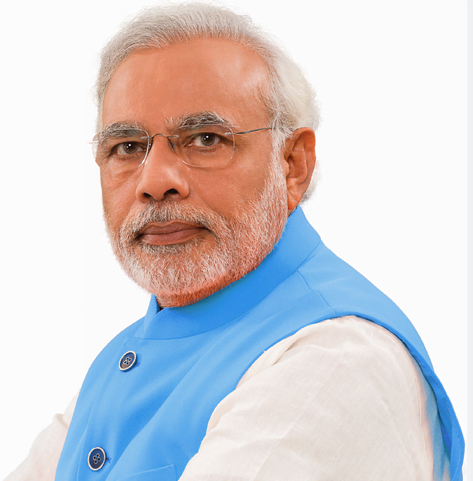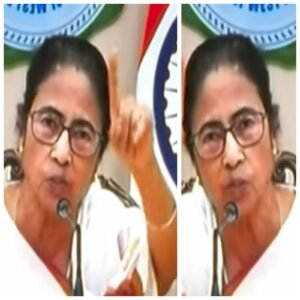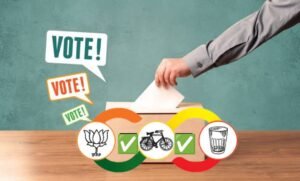Can Narendra Modi Secure a Third Term in 2024?

Can Narendra Modi Secure a Third Term in 2024?
As India gears up for the 2024 general elections, the spotlight is on Prime Minister Narendra Modi and whether he can retain his position for a third consecutive term. Since taking office in 2014, Modi has profoundly influenced the political landscape and socio-economic fabric of the country. This article explores the various factors that could impact Modi’s chances in the upcoming elections, including his popularity, the achievements of his government, challenges faced, and the dynamics of the current political climate.
The Modi Phenomenon: Charisma and Leadership
1.1 Popularity and Public Perception
Narendra Modi’s rise to power can be attributed to his charismatic personality and ability to connect with the masses. Over the years, he has cultivated an image of a strong leader capable of decisive action. His speeches often resonate with a broad spectrum of the Indian population, appealing to national pride and aspirations for development. Polls indicate that a significant portion of the electorate still views him favorably, despite various controversies that have surrounded his administration.
1.2 Media Savvy and Digital Outreach
Modi’s use of social media and digital platforms has revolutionized political communication in India. He effectively engages with citizens through platforms like Twitter, Facebook, and Instagram, allowing him to reach a younger, tech-savvy demographic. This digital outreach has bolstered his public image and enabled him to maintain a direct line of communication with voters.
Key Initiatives and Policies
2.1 Economic Initiatives
Under Modi’s leadership, several ambitious economic initiatives have been launched, aimed at transforming India into a global manufacturing hub. The “Make in India” campaign, launched in 2014, sought to encourage companies to manufacture their products in India. This initiative aimed not only to boost job creation but also to attract foreign investment.
However, while these initiatives have garnered praise, they have also faced criticism. The actual impact on job creation and economic growth has been a matter of debate, with many arguing that the benefits have not been as widespread as promised.
2.2 Infrastructure Development
Modi’s government has made significant strides in infrastructure development. Projects like the Bharatmala and Sagarmala initiatives focus on improving road and port connectivity, while the Pradhan Mantri Awas Yojana aims to provide affordable housing for all. The emphasis on infrastructure is viewed as a critical factor in driving economic growth and improving the quality of life for millions of Indians.
2.3 Social Welfare Schemes
Modi’s administration has also implemented numerous social welfare schemes, such as the Pradhan Mantri Jan Dhan Yojana, which aims to increase financial inclusion, and the Ayushman Bharat scheme, providing health coverage to millions. These initiatives have helped to enhance his appeal, particularly among marginalized sections of society.
Challenges Ahead
3.1 Economic Concerns
Despite various initiatives, the Indian economy has faced significant challenges, especially in the wake of the COVID-19 pandemic. Rising inflation, unemployment rates, and supply chain disruptions have raised concerns about economic stability. How effectively Modi addresses these issues in the lead-up to the elections will likely influence voter sentiment.
3.2 Opposition and Regional Dynamics
The political landscape in India is highly dynamic, with various regional parties gaining traction. The opposition, particularly the Indian National Congress and regional players like the Aam Aadmi Party, have been vocal in criticizing Modi’s policies. Their ability to form alliances and present a united front could significantly impact the electoral outcome.
3.3 Social Issues and Polarization
Social issues, including religious tensions and caste-based politics, could also play a crucial role in shaping voter behavior. Critics argue that Modi’s government has been divisive, with policies perceived as favoring certain communities over others. The electorate’s response to these social dynamics will be critical in determining the election’s outcome.
The Role of Electoral Alliances
4.1 Importance of Alliances
In Indian politics, forming strategic alliances can make or break electoral success. The National Democratic Alliance (NDA), led by the BJP, will need to ensure strong alliances with regional parties to bolster its chances in various states. The performance of allies and their ability to mobilize support will be vital in key constituencies.
4.2 Opposition Strategies
The opposition parties are also likely to focus on coalition-building. Past elections have shown that united fronts can significantly challenge the ruling party. The ability of the opposition to articulate a clear alternative vision and present credible candidates will influence voter choices.
Voter Sentiment and the Electorate
5.1 Importance of the Electorate’s Voice
Ultimately, the decision lies with the Indian electorate. Voter sentiment can be unpredictable, influenced by recent events, economic conditions, and public perception of the government’s performance. Engaging with the electorate and addressing their concerns will be critical for Modi as the elections approach.
5.2 Role of Youth Voters
With a significant portion of the population being young voters, their opinions and preferences will play a crucial role. Issues such as job opportunities, education, and digital access are likely to be at the forefront of their concerns. Modi’s ability to resonate with this demographic could sway the election in his favor.
A Dynamic Political Landscape
As the 2024 general elections draw near, the question of whether Narendra Modi can secure a third term remains open. While his popularity, leadership, and key initiatives provide him with a solid foundation, challenges from the economy, opposition parties, and social dynamics pose significant hurdles.
The political landscape is ever-evolving, and the electorate’s mood will ultimately dictate the outcome. Modi’s ability to adapt to changing circumstances and address the pressing concerns of the Indian people will be paramount in his quest for re-election. As we await the unfolding of events, one thing is clear: the upcoming elections will be a pivotal moment in India’s democratic journey.



